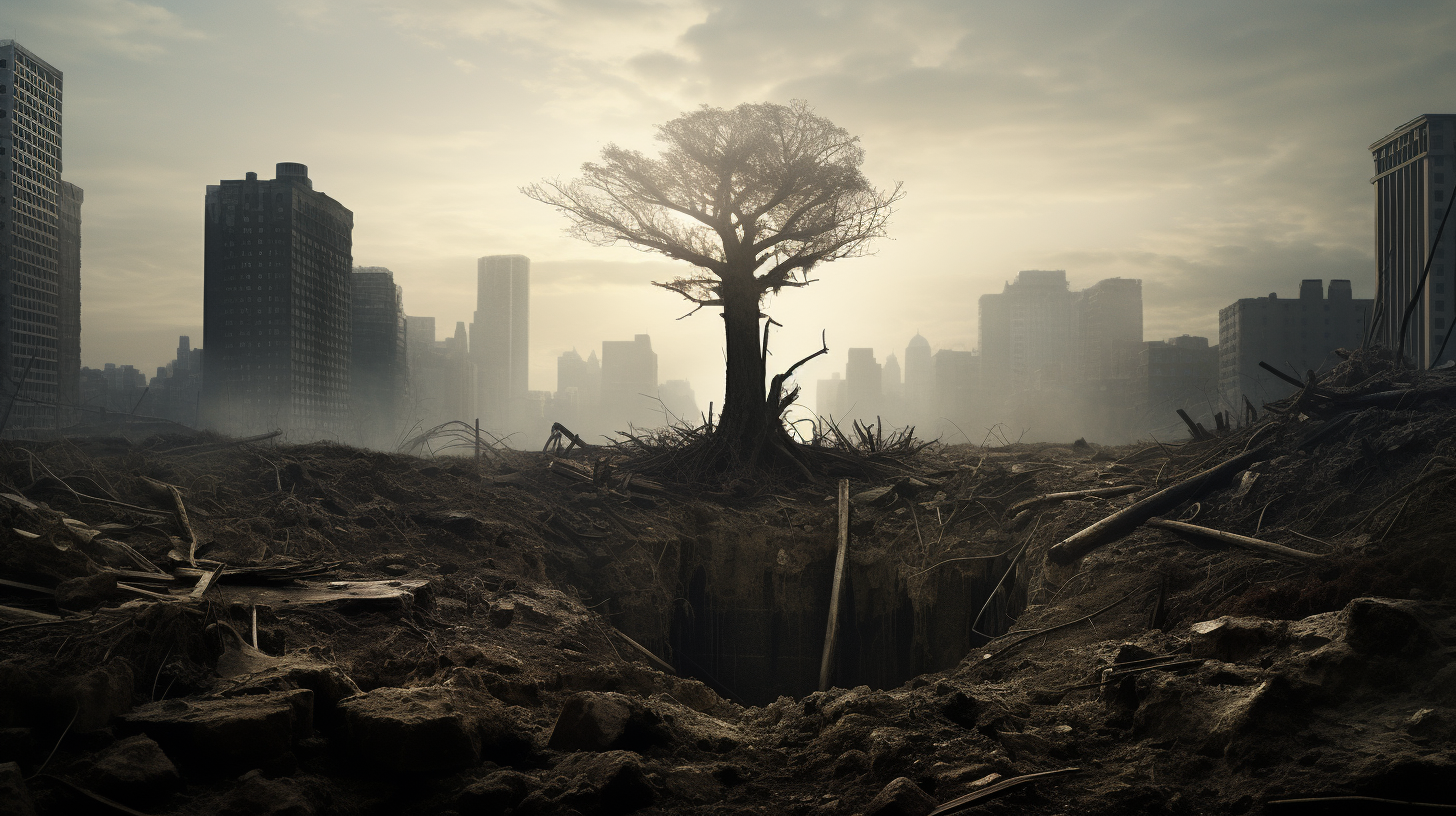The world once teemed with emerald expanses, vast and vivacious canopies that stood as earthly crowns. Today, however, the incessant growl of chainsaws and the thuds of timber have become the harbingers of an ominous finality. As we gaze upon the barren horizons, one dire question looms ominously: When the last tree falls, will we even be there to hear it?
In an existence marked by rapid deforestation and environmental decay, we’re veering dangerously close to answering that question firsthand. Our planet’s verdant veins are hemorrhaging beyond repair; the once ubiquitous rustling of leaves has given way to an eerie silence that reverberates through the bones of the Earth—a testament to the grave we’ve dug ourselves.
The grim statistics are no secret; they lurk in every corner of our daily lives. From the whispering ghosts of wildlife that once thrived to the parched soils, yearning for the nurturing touch of roots that no longer exist. Like a morose echo of the past, these whispers serve as a grim reminder of what once was—a world that hummed with the vibrancy of life in every corner.
Despite this, laughter remains scarce among the vestiges of the forest. Here, absence speaks more than presence ever could; for in the stillness, we find the chilling narrative of our future. The forests are not just a distant memory; they are a mirror, reflecting our impending destiny should we choose to turn a blind eye. Each fallen tree, another muted testimony to our collective apathy.
Consider the tale of the Brazilian rainforest, a once-majestic kingdom where biodiversity boasted its splendor unashamedly. Now standing desolate, razed fields of ash blanket the ground, a stark contrast to the lush canopy of life that danced above. Here, the fall of the ‘last’ tree did not arrive with a singular thunderous crash, but rather as a cacophony of loss that fell on deaf hearts and blind eyes. For in our pursuit of progress, we’ve silenced the very heartbeat of nature.
The dominos have been falling for decades, and scientists are practically screaming from their labs and field sites, forecasting the cascading failures that are to come. Shriveling crops, vanishing pollinators, and the untold suffering of communities losing their lands and livelihoods to desertification and erosion.
So, as the lamentation of the Earth grows louder, do we possess the courage to listen? Or will we continue to muffle her cries with the static of our own creation? The echoes of a vanishing world implore us to act, not with the hope of redemption, but with the determination to at least mitigate the continued disintegration of our once vibrant environment. Recognize the harrowing truth that is unfolding before our very eyes, and perhaps then, we can grasp the weight of a silence that speaks volumes.
The answer to our opening quandary remains distressingly tangible, yet shrouded in denial. We are nearing the precipice where the forest’s last sentry may fall unnoticed, unheralded by a world deafened by its own undoing. The quietus of the last tree will not just be the cessation of a sound. It will signify the extinguishing of millennia of growth, a repository of wisdom, and the cessation of countless whispers of life.
The question isn’t just whether we will hear the last tree fall—it’s whether we’ll allow ourselves to remain to confront the deafening silence it leaves behind. For when that final tree succumbs, it will not only mark an end, but also stand as an indictment of all that could have been prevented.
As the shadows lengthen and the murmurs of wildlife fade, we must ponder the legacy we are to leave. The forests, silent sentinels to our folly, may not outlast us… but their demise will surely define us.
